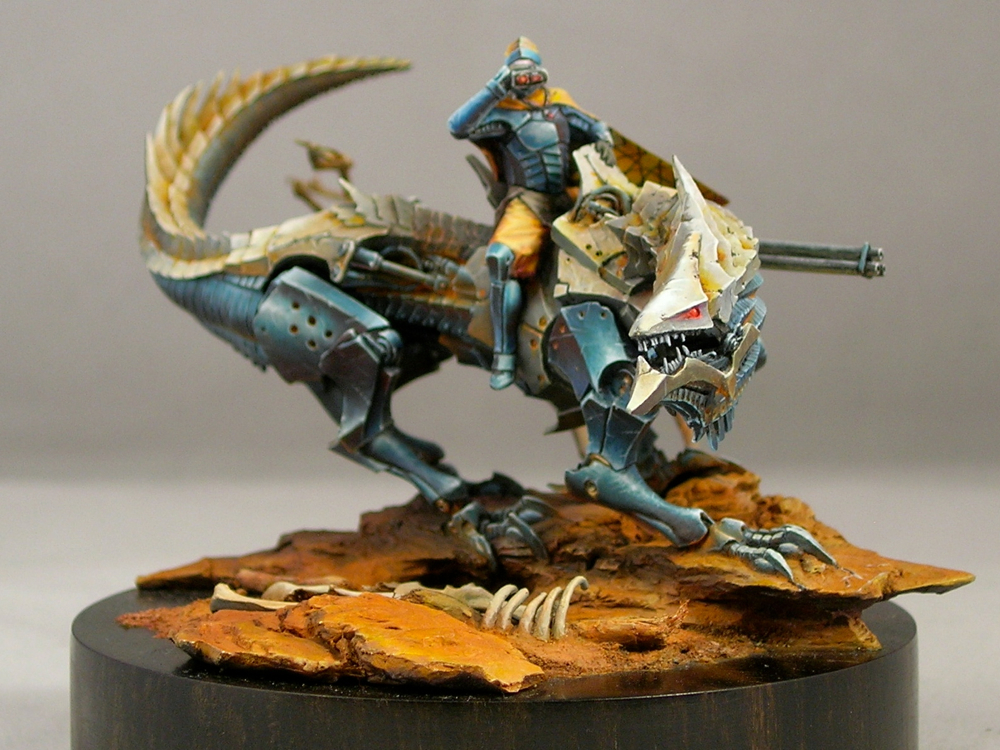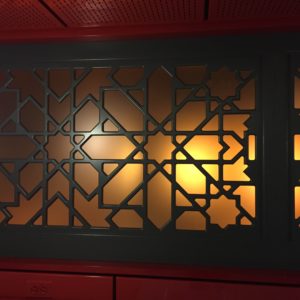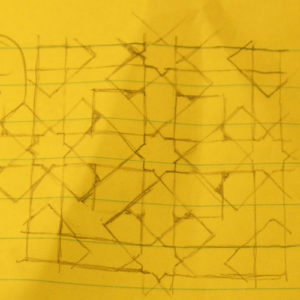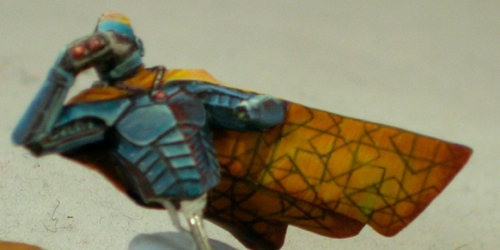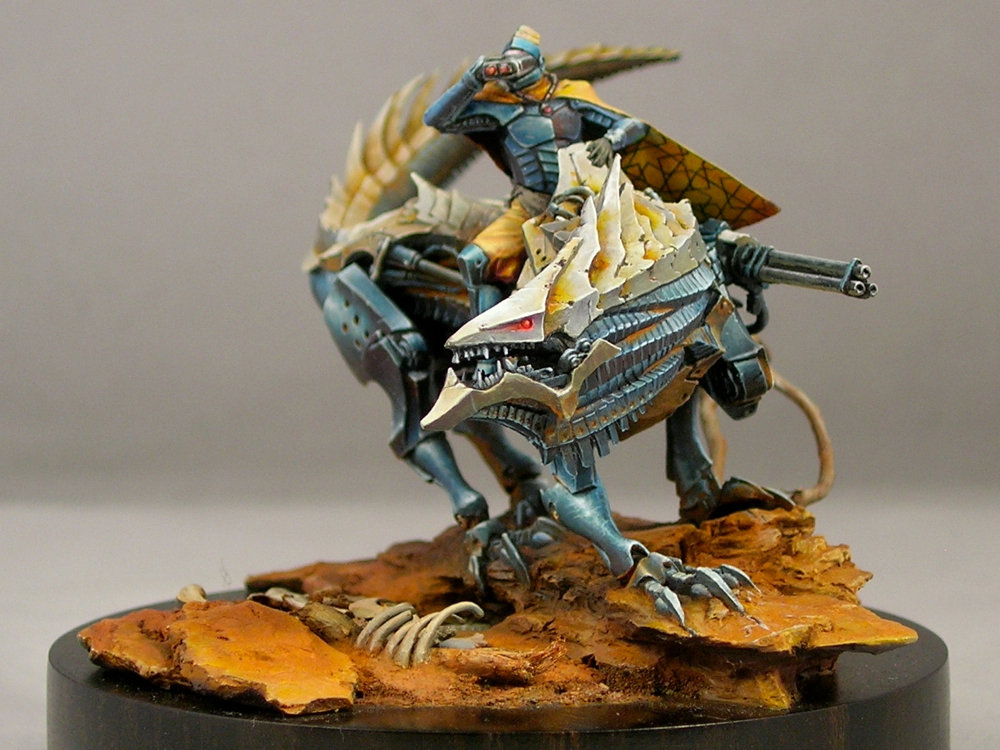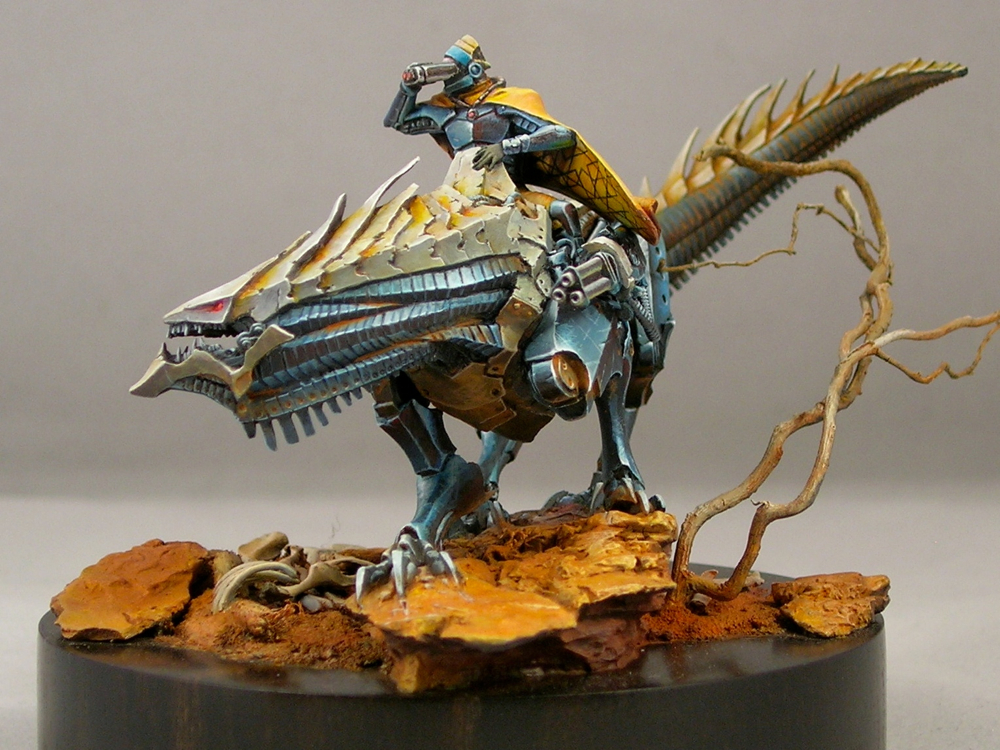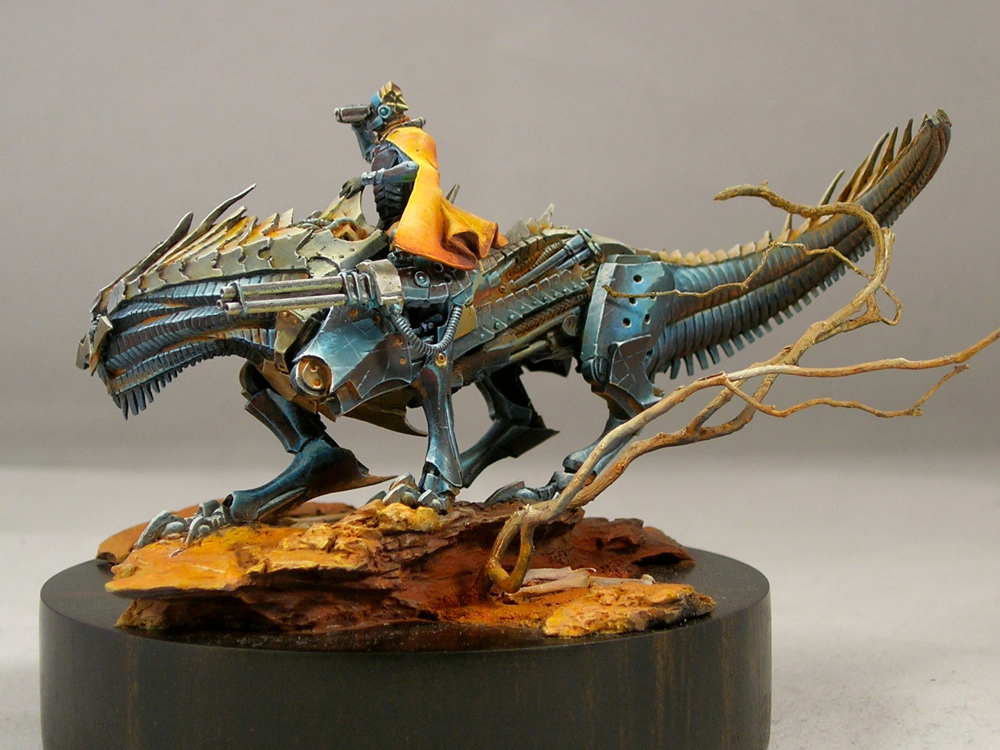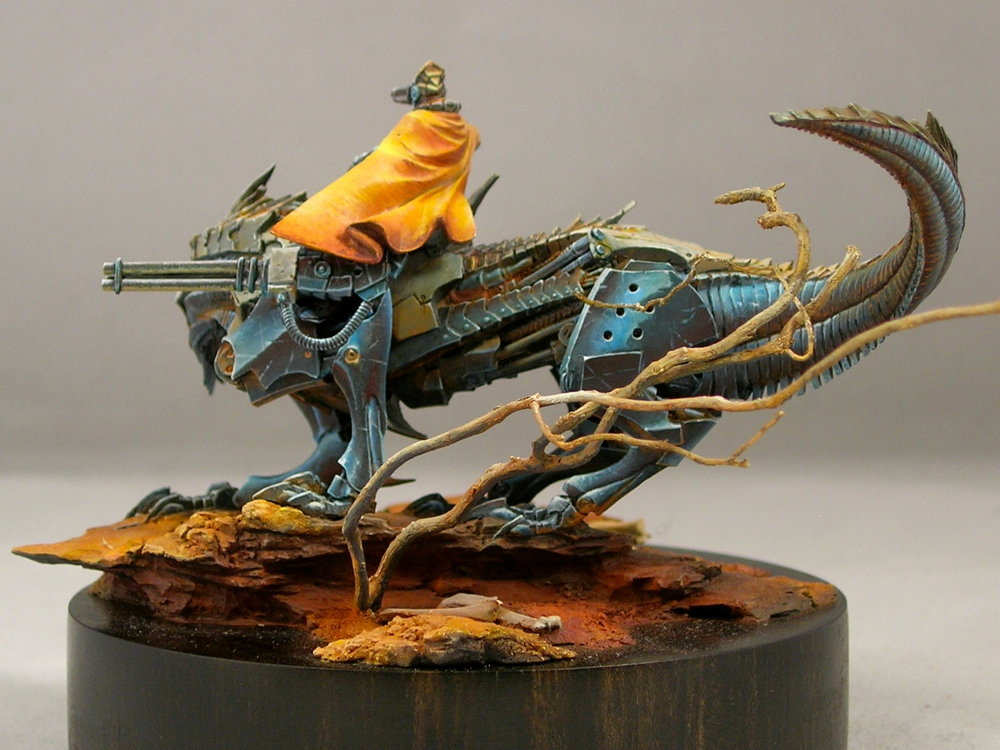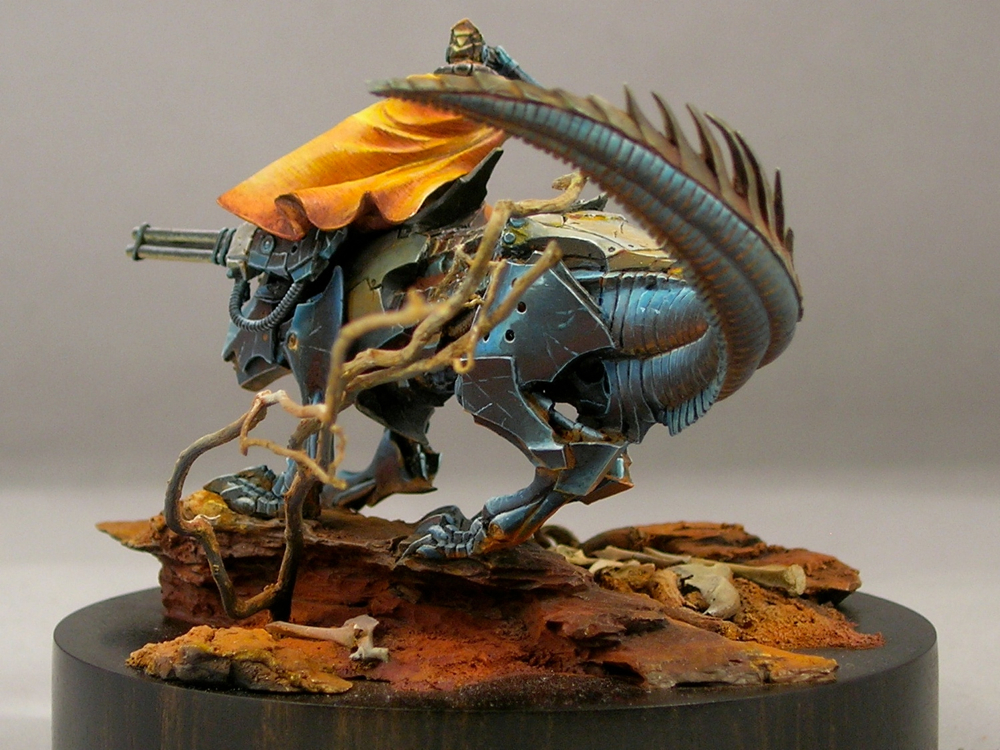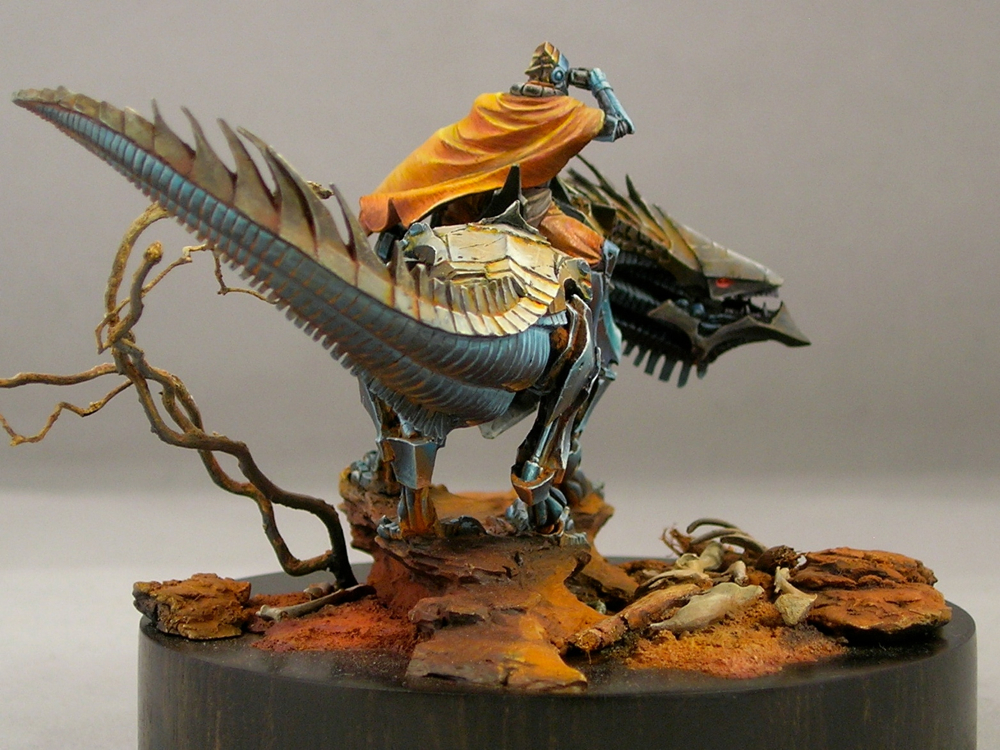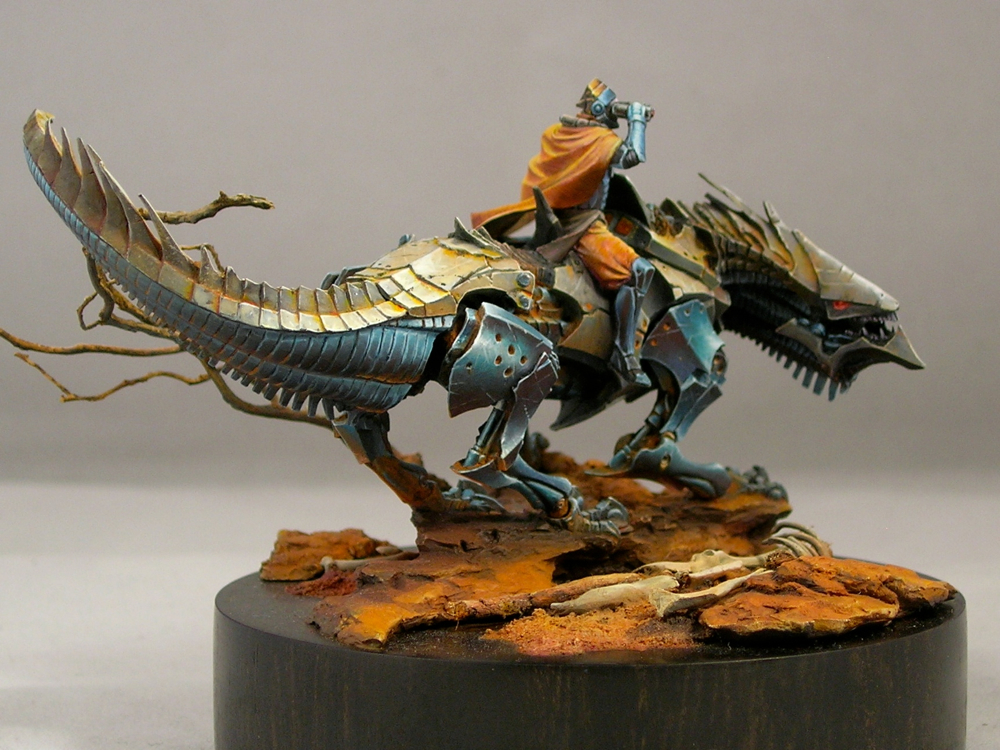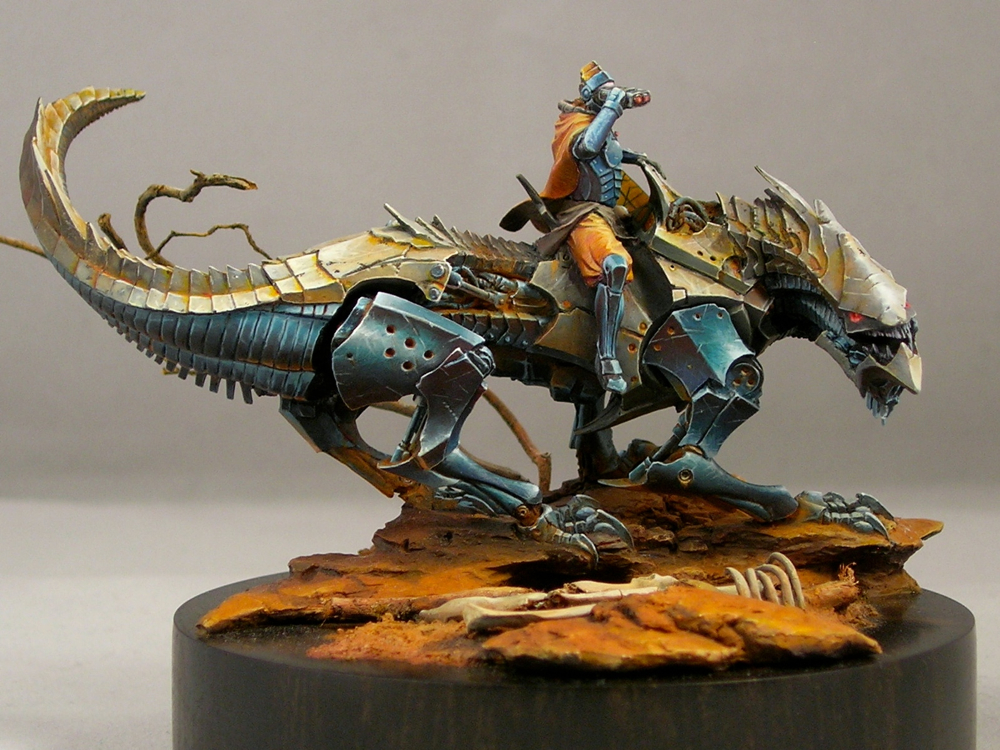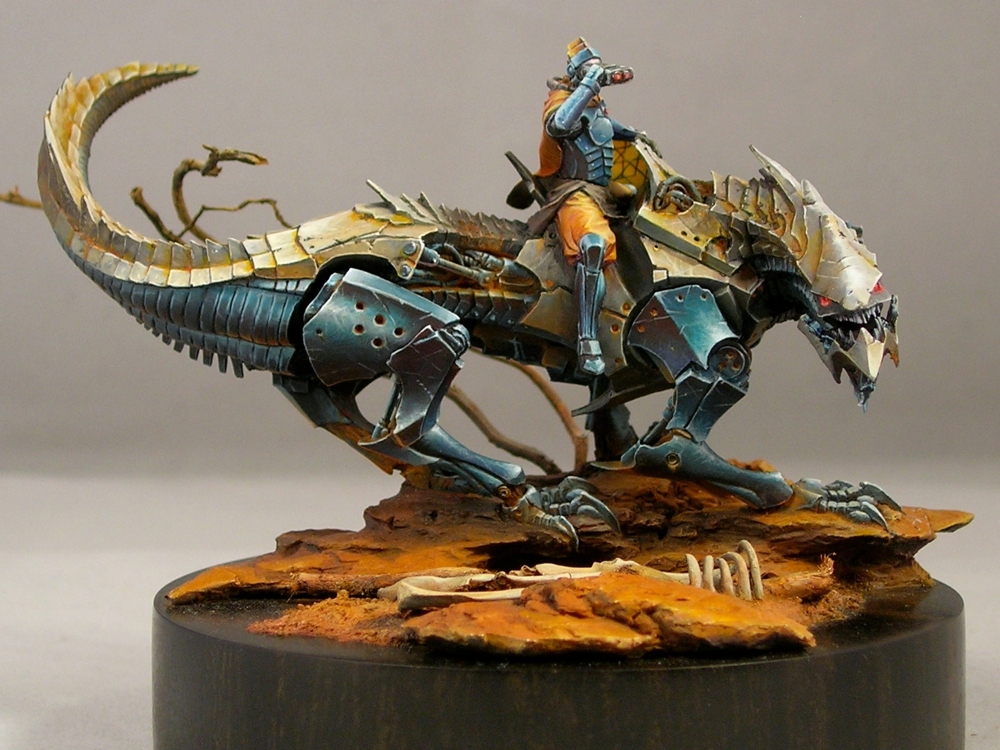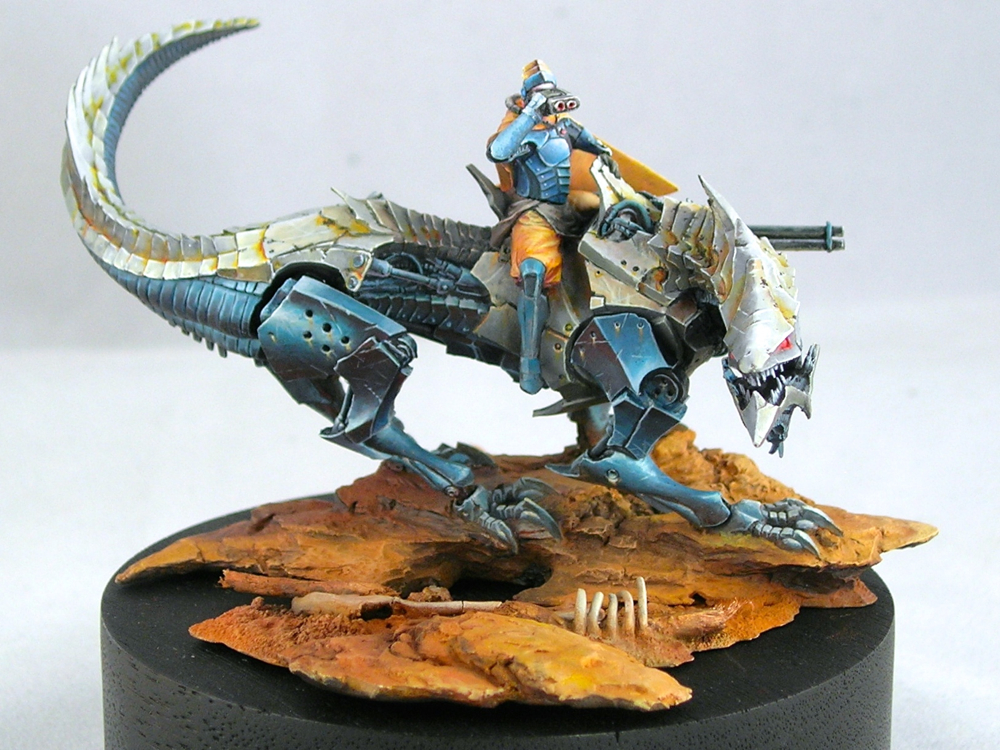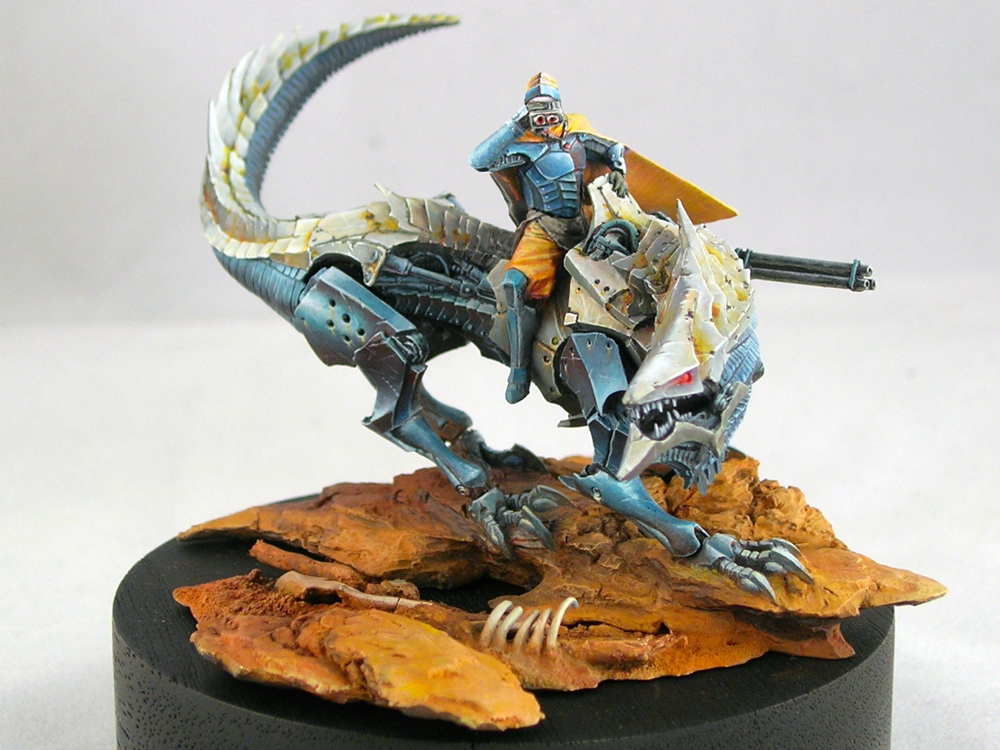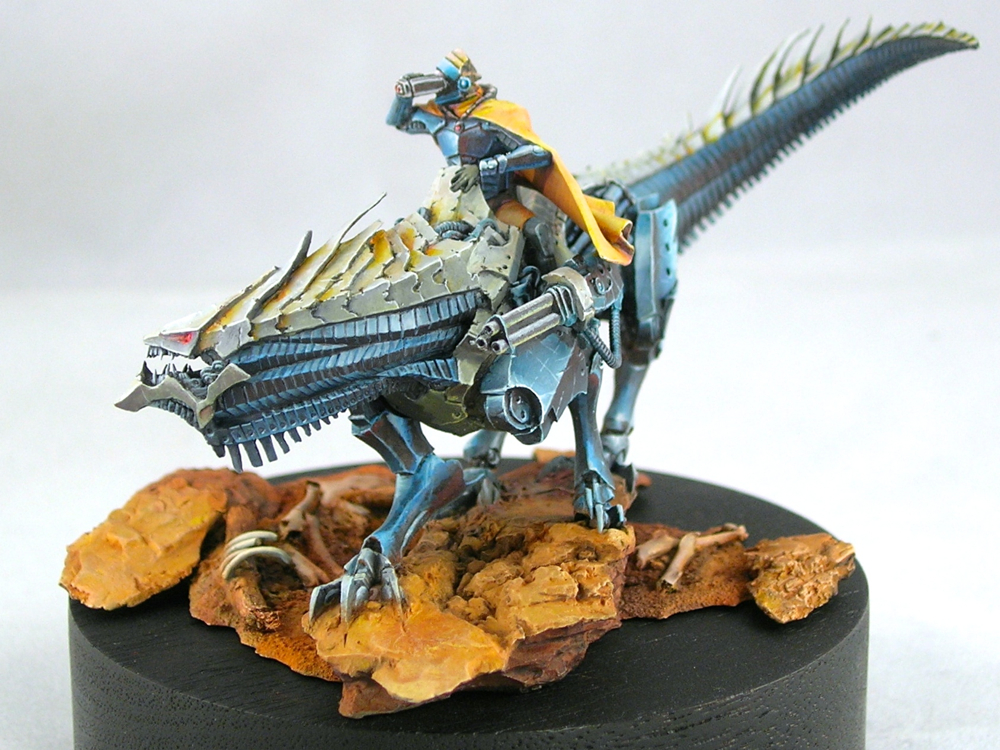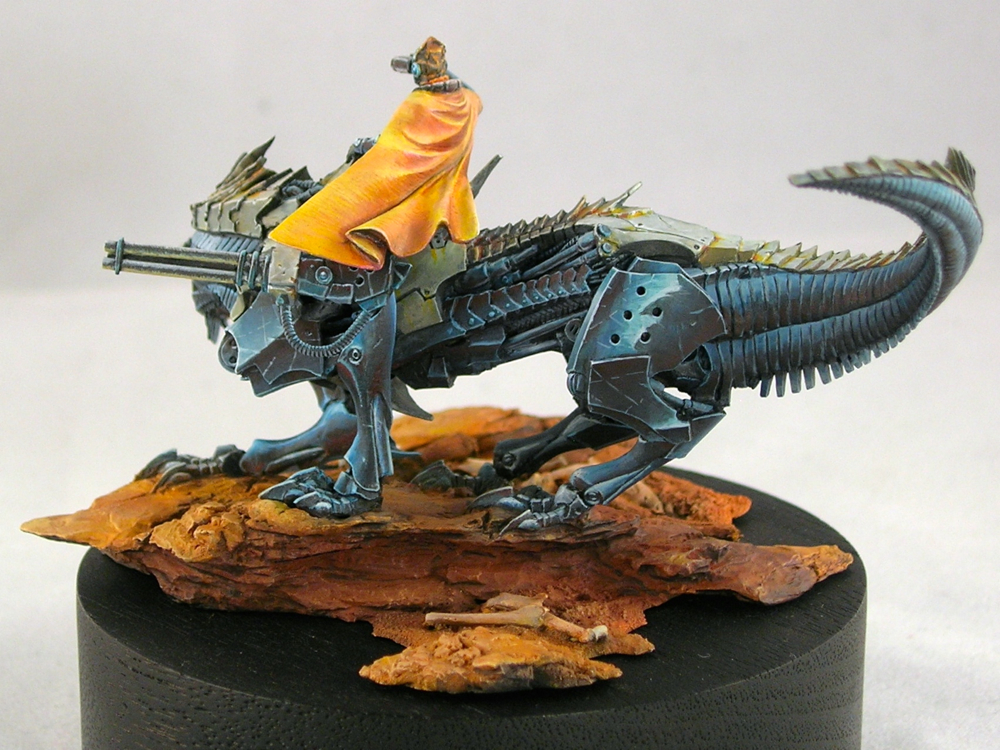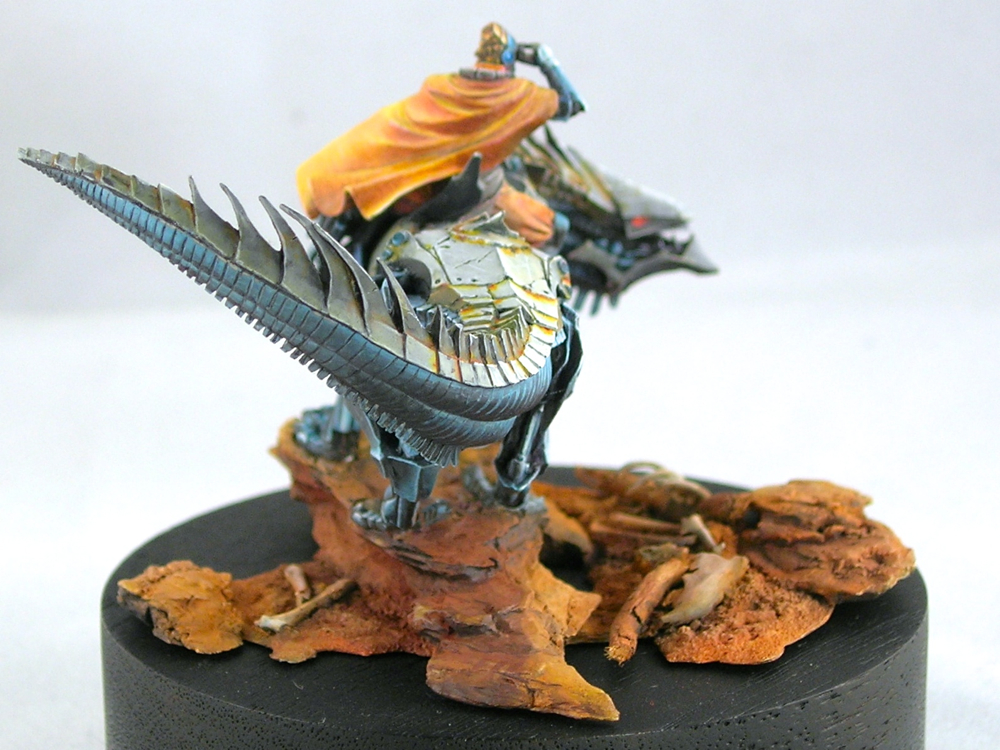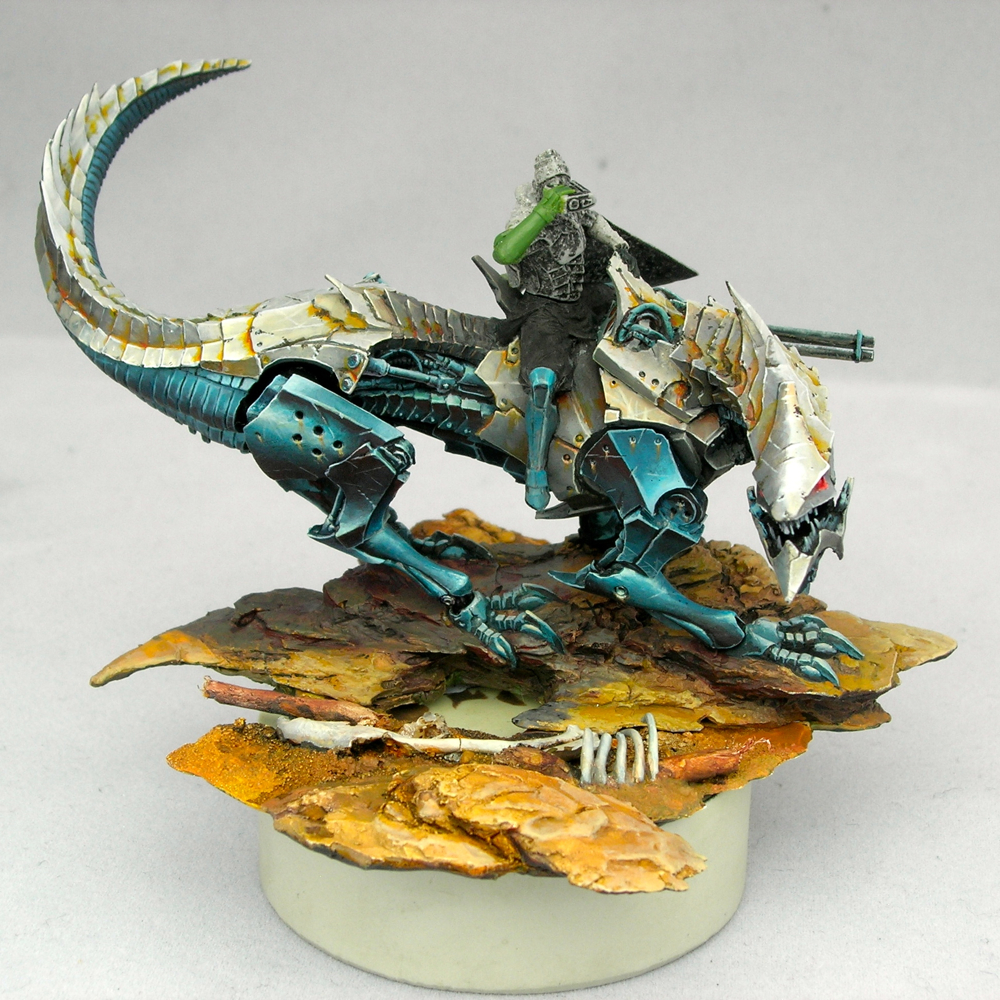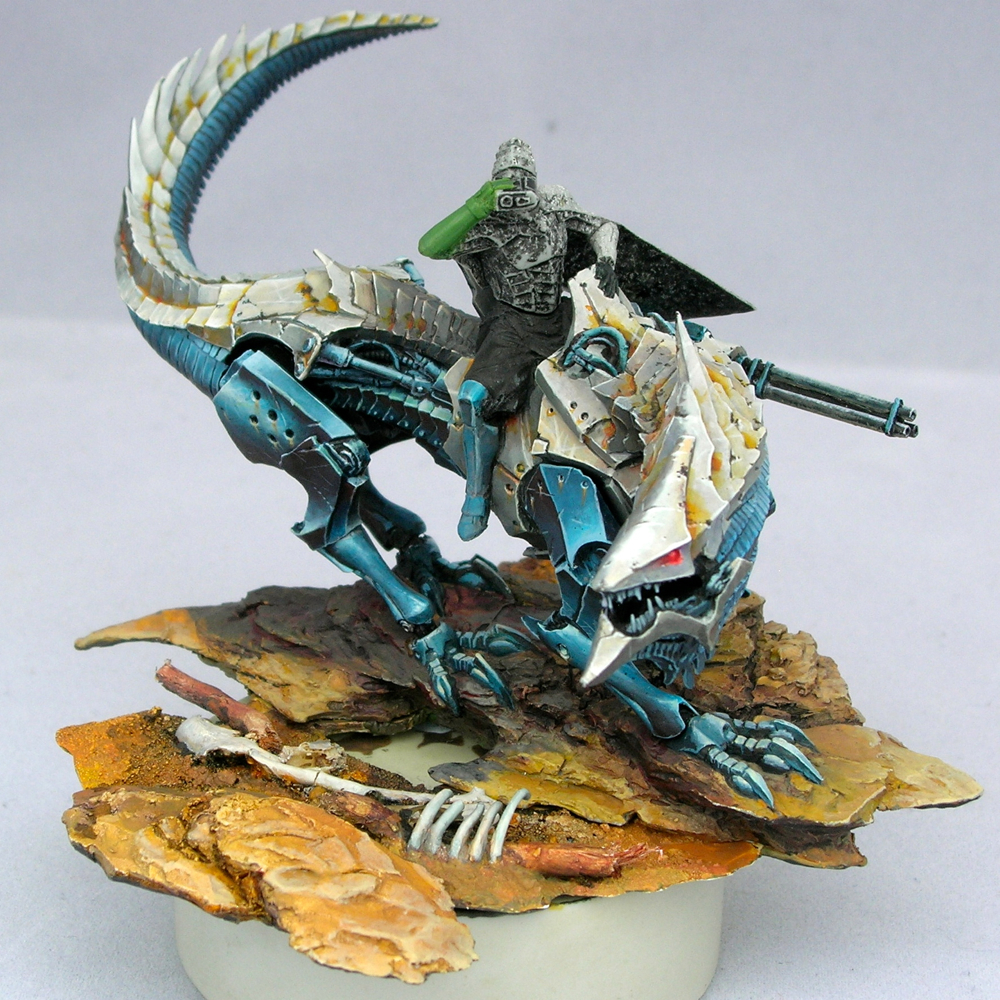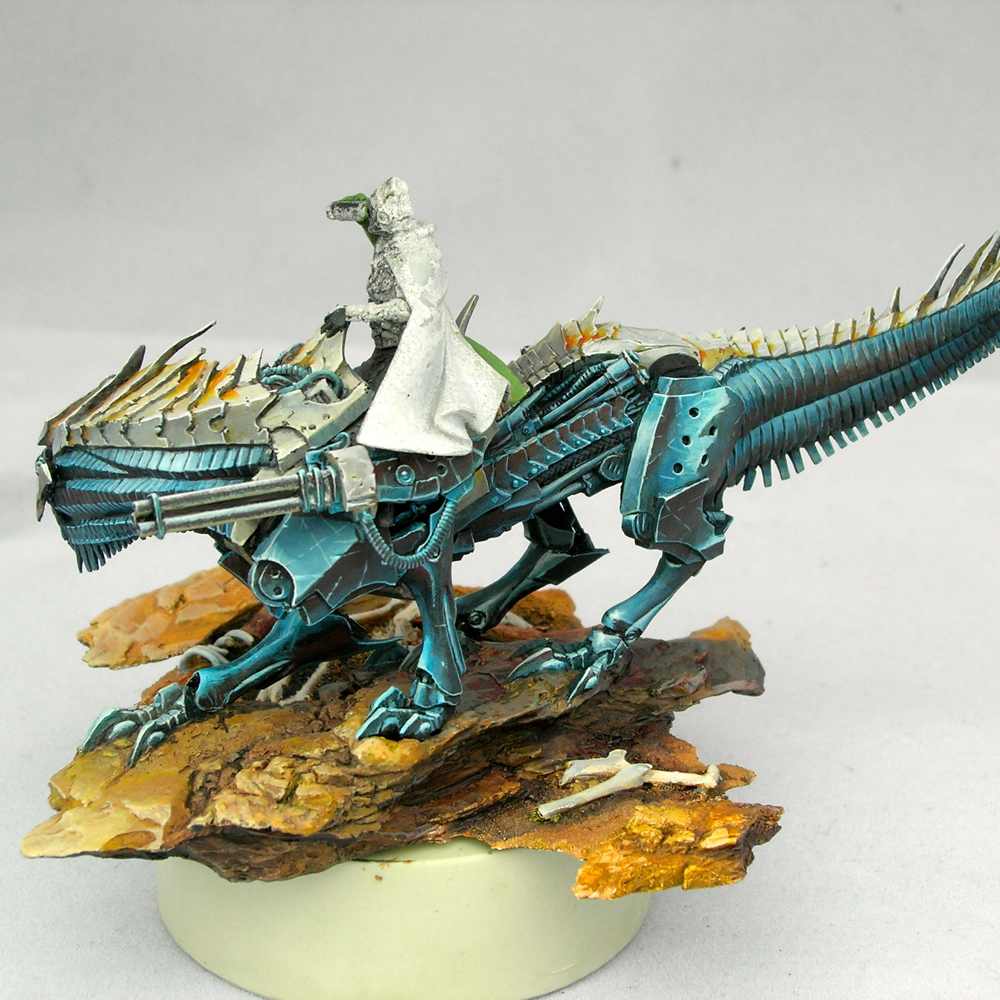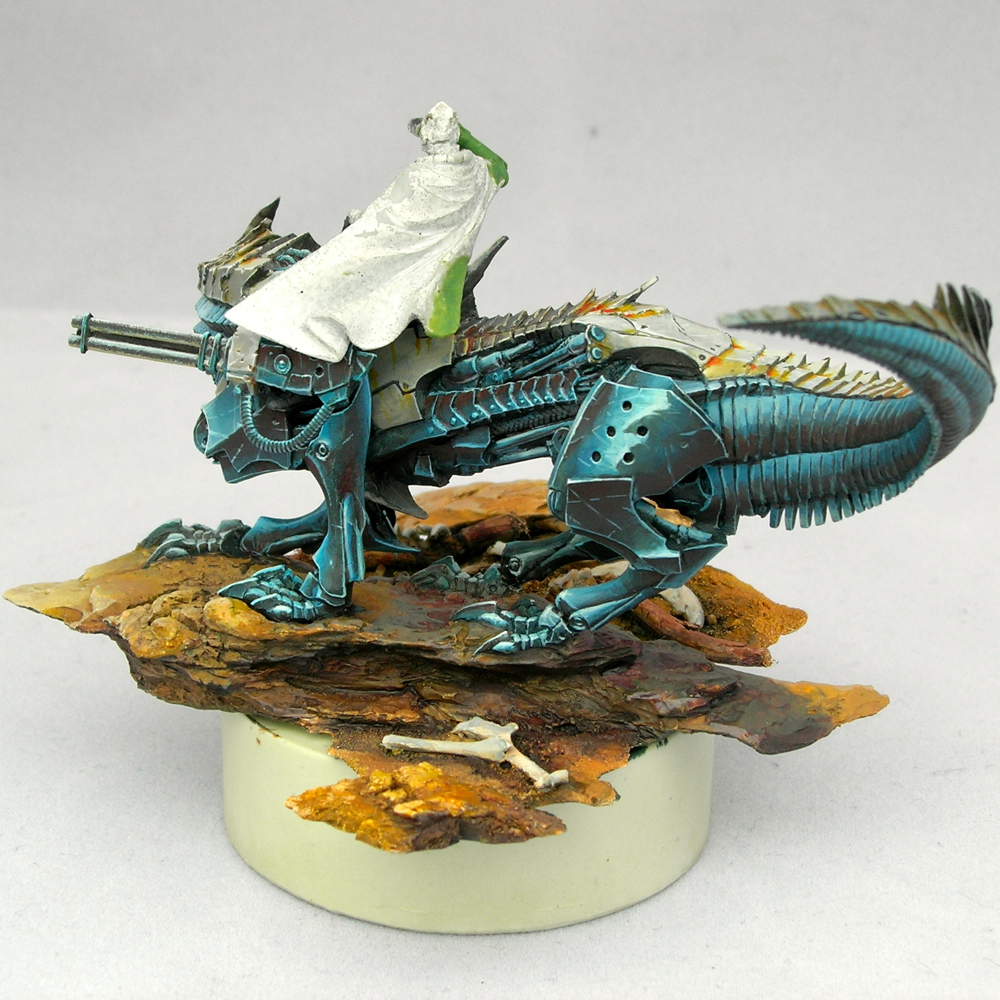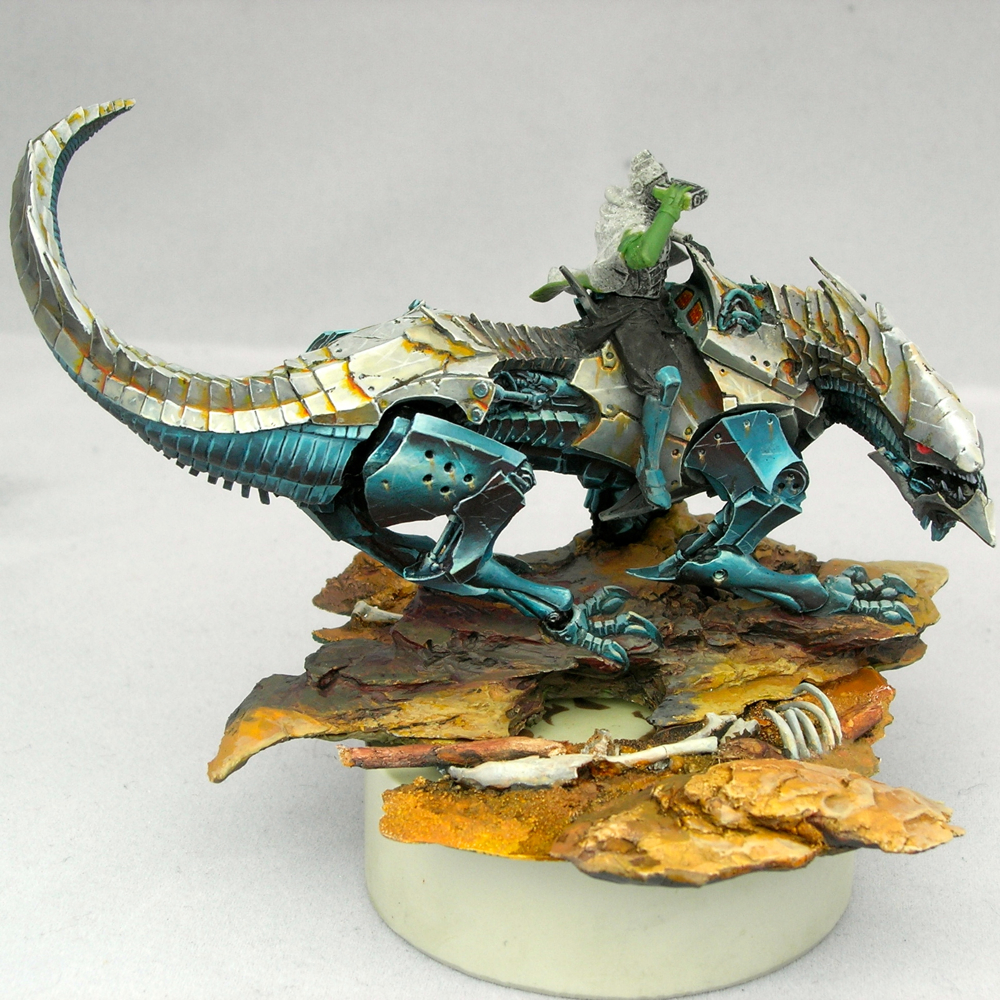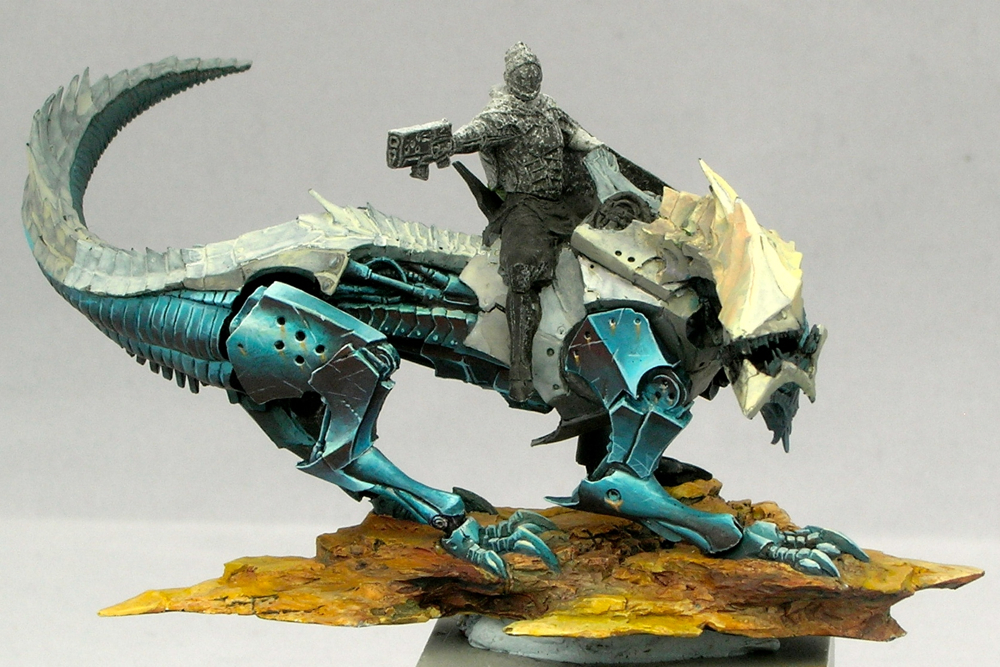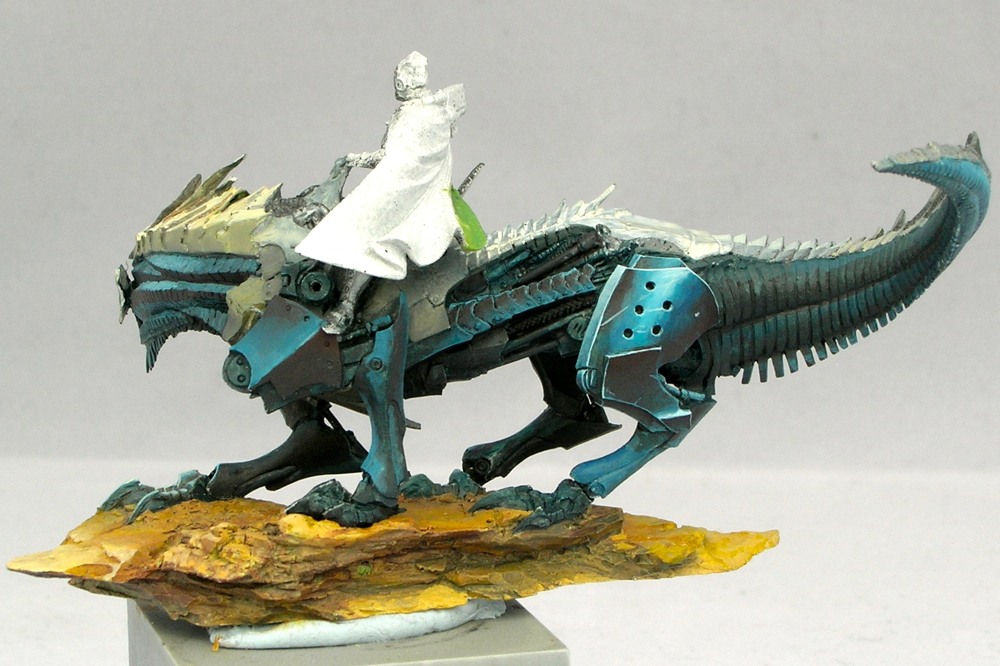I began working on this miniature last fall, shortly after Gen Con 2015, but only recently finished it, for Gen Con 2016. (WIPs: part 1, part 2, part 3.)
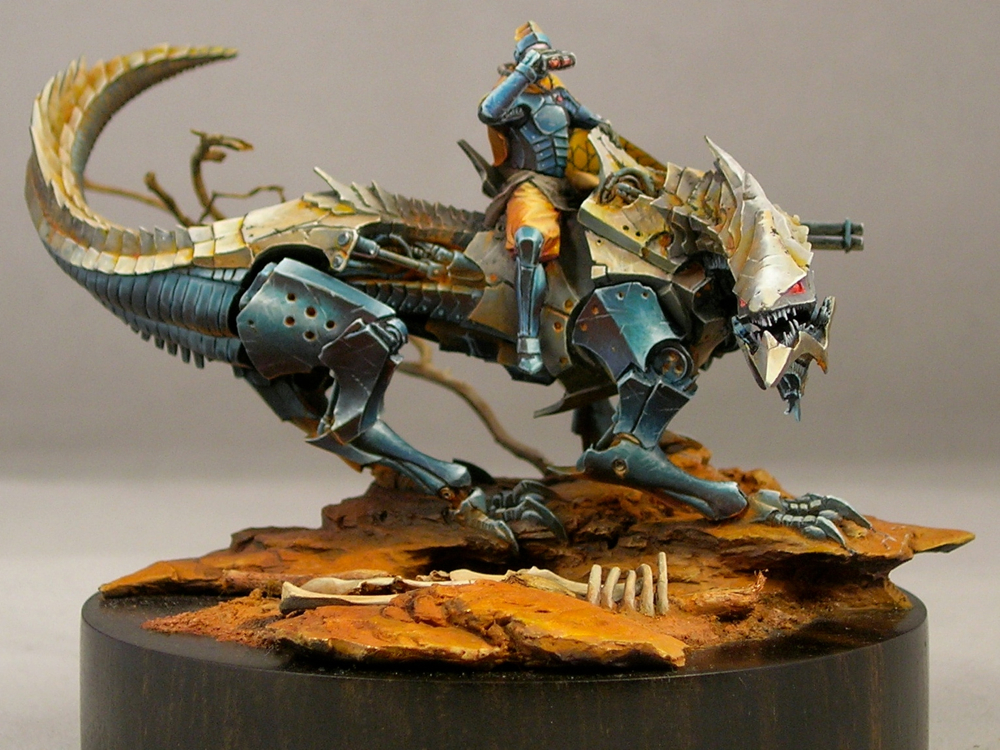
It’s really a fantastic miniature, from the game Dark Age, and I love how much energy there is in the sculpt. I did some conversion work on the rider, twisting the cloak and moving the arm to give him a more three-dimensional pose, and also because I liked the feeling that binoculars gave the miniature (as opposed to a pistol).
As I mentioned back in October, I was thinking about using south asian or west asian fabric patterns to decorate the cloak. I did a lot of image searches looking for inspiration, and eventually ended up settling on an Islamic geometric design, even though those are more commonly seen in architecture rather than on fabrics. Amusingly, though I spent hours googling possible designs, the one I settled on was from my office cafeteria rather than image search.
Before transferring the design onto the cloak, I did a sketch (and modified the pattern slightly, adding more symmetry).
The inside of the cloak has a large flat area, which is really perfect for this sort of intricate freehand design. Here is a work-in progress picture of the cloak. When this photo was taken, I still needed to make the line thicknesses more consistent. But first it’s more important to get the entire pattern laid out, since you don’t want to spend a lot of time getting a line straight and even only to realize it’s in the wrong place.
The green spot on the cloak is actually intentional, though it looks totally weird in this picture. Once the rider is mounted, that part of the cloak is right above a piece of blue metal, the back of the shoulder-mounted gatling gun. So it’s an entirely natural place to see reflected blue light; yellow and blue makes green. I’ve been thinking about light a lot in my miniature painting for the last couple years, and I’m a big fan of reflected light. In some of the other pictures, you can also see ground reflections in the metals, particularly on the legs. The effect is quite subtle, but I think it adds a certain amount of realism and keeps things from being too cartoony.
The other big change since the last in-progress post, besides the freehand on the cloak, is the addition of a lot of dirt and grime to the mount. I have a friend who I like to ask for critiques, and he always tells me my miniatures are too clean and I need to make them dirtier. But he is helpfully specific in how I need to make the miniature dirtier, so his comments are very useful. For this mini, he complained that someone wandering through the desert riding a powerful beast would churn up a lot of dirt, so why does the mount look so clean? He was absolutely right, as usual.
I used the same pigments I used on the base in order to add the dirt. I kept it focused around the joints and in the cracks between armor plates and other mechanical elements. This is, of course, where you would expect dust to accumulate. But I also didn’t want to obscure the beautiful blue metals, and the brilliant white reflections, and keeping the dust confined to joints and cracks helps this happen. It’s sometimes a tricky balancing act, trying to get a realistically weathered appearance while still maintaining strong contrasts and making shapes that are easy to read at miniature scale. I think I was able to reach a good balance with this miniature.
The dead tree is just some cool roots I found while walking near my office. Roots tend to work better than above-ground parts of plants in miniature scale, since they look like miniature versions of the above-ground bits. This piece was really cool and twisted looking, which I thought made it look like it had been warped by powerful winds.
The sculptor did a fantastic job on the drapery on the back of the cloak, so I decided not to add freehand to the back, which would only distract from the great sculpt. Instead, I used very strong highlights and shadows to really bring out the details of the drapery work. It’s lovely when you get a beautiful sculpt like this which doesn’t need any freehand decoration, but I’m also happy that the sculptor left a broad flat surface on the inside of the cloak which was perfect for adding a pattern.
I did add a bit of texture to the fabric to add some interest to the lower half where the sculpt is less detailed. Smooth blends are for smooth surfaces only, and I imagined my desert wanderer would need a coarse garment which could stand up to sandstorms.
The bones on the base are mostly rodent bones from ebay. I assume they came from an owl pellet, but I bought pre-cleaned bones since I didn’t really want to dissect an owl pellet. The exception is the ribs—I really wanted a ribcage sticking up out of the dirt, but there weren’t any appropriate bones in the set I ebayed so I sculpted some out of green-stuff.
In this picture you can see where I added some control panels for the rider to see readouts from the mount’s sensors. These were added with freehand. That surface is smooth in the sculpt, but I figure that robotic dragons need dashboards so I added some screens.
I entered this figure into the painting competition at Gen Con, where he was eligible for both the overall awards and the Rainbow Brush competition. Rainbow Brush, which is organized by one of the best miniature painters in the world, was started last year to express support for groups facing oppression and marginalization in the wake of anti-gay legislation that was passed in Indiana, where Gen Con is held. This year the theme was Islam, chosen because of the extreme and appalling anti-Muslim sentiment which has been particularly virulent this election season. As it happens, I had already decided on the Islamic pattern for the Desert Wanderer’s cloak before the theme was announced, but I thought he made a fitting entry.
Desert Wanderer won a gold medal in the open judging at Gen Con, and placed first in the Rainbow Brush competition.
You can also see him on CoolMiniorNot and Putty & Paint, where you can rate him if that’s your jam.
